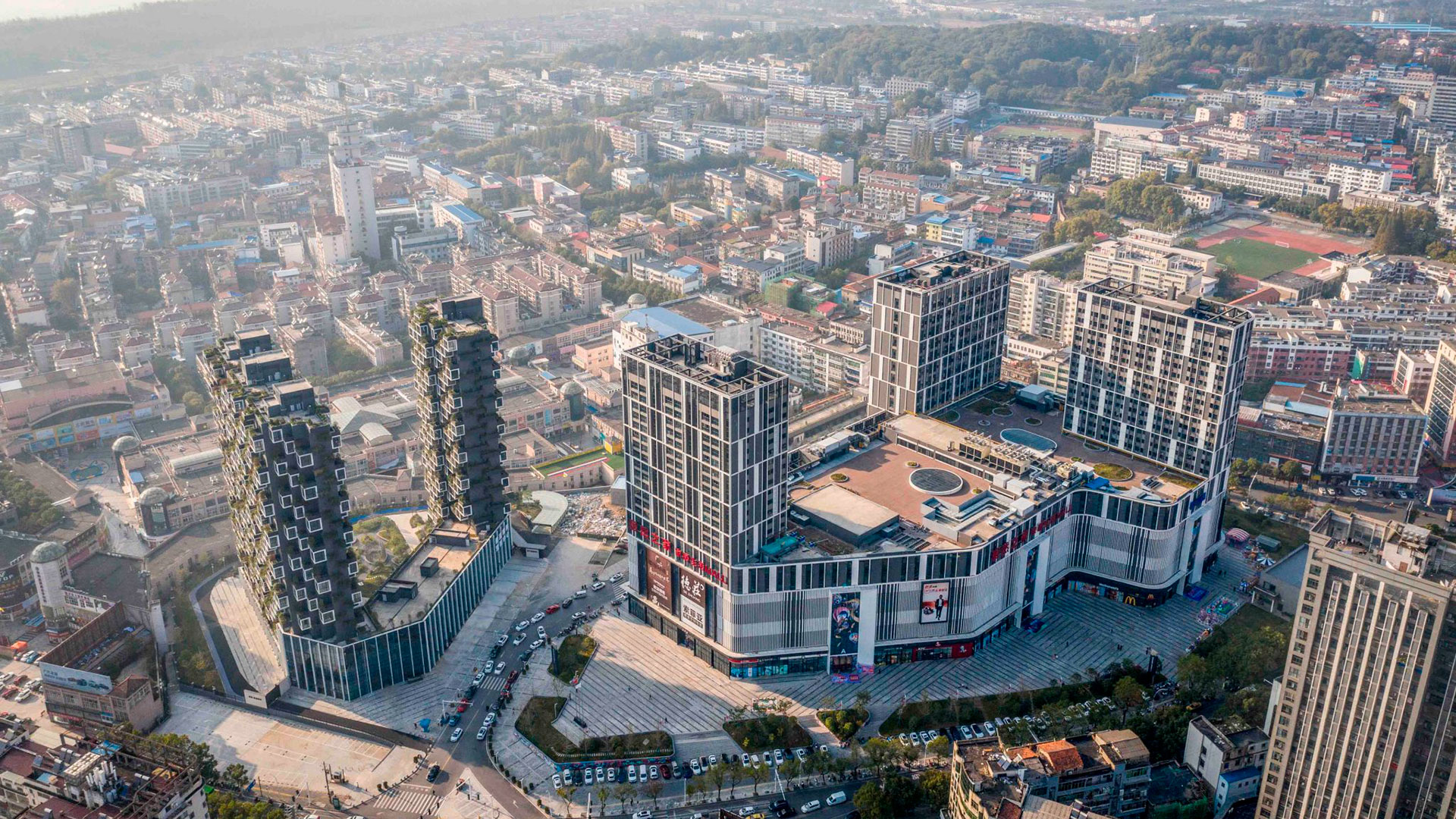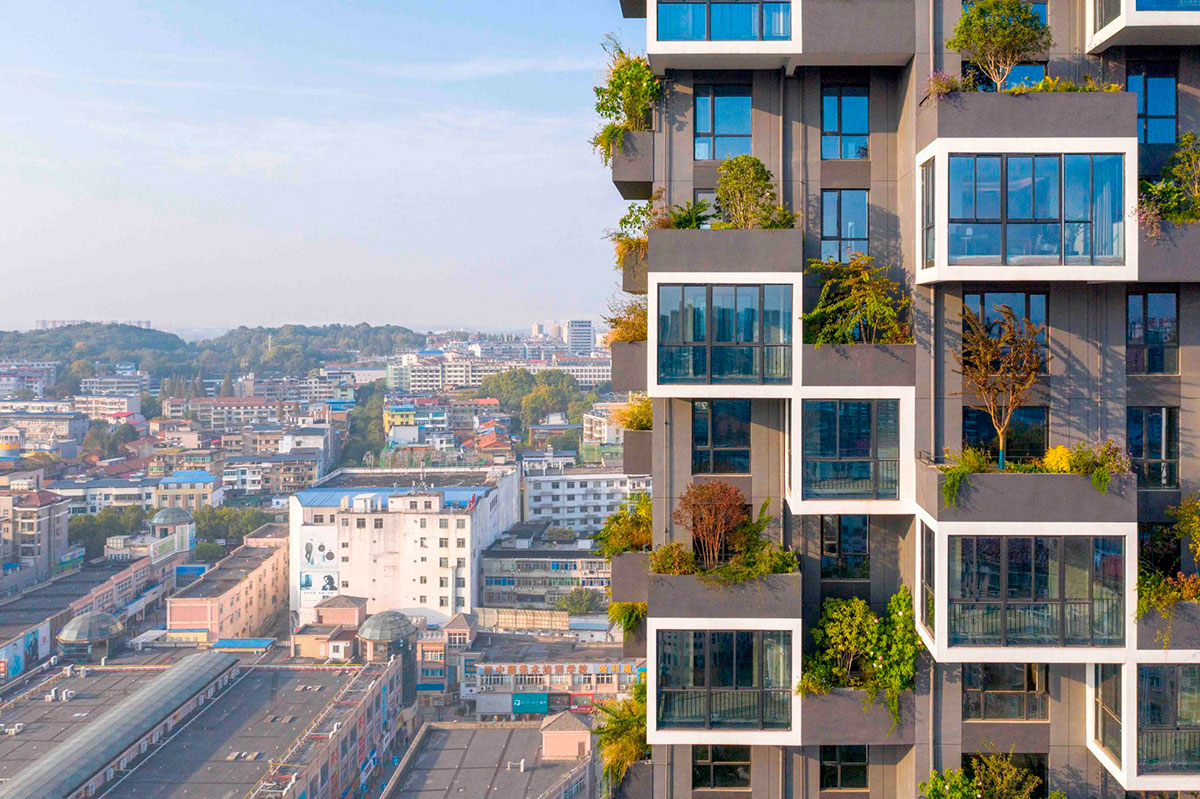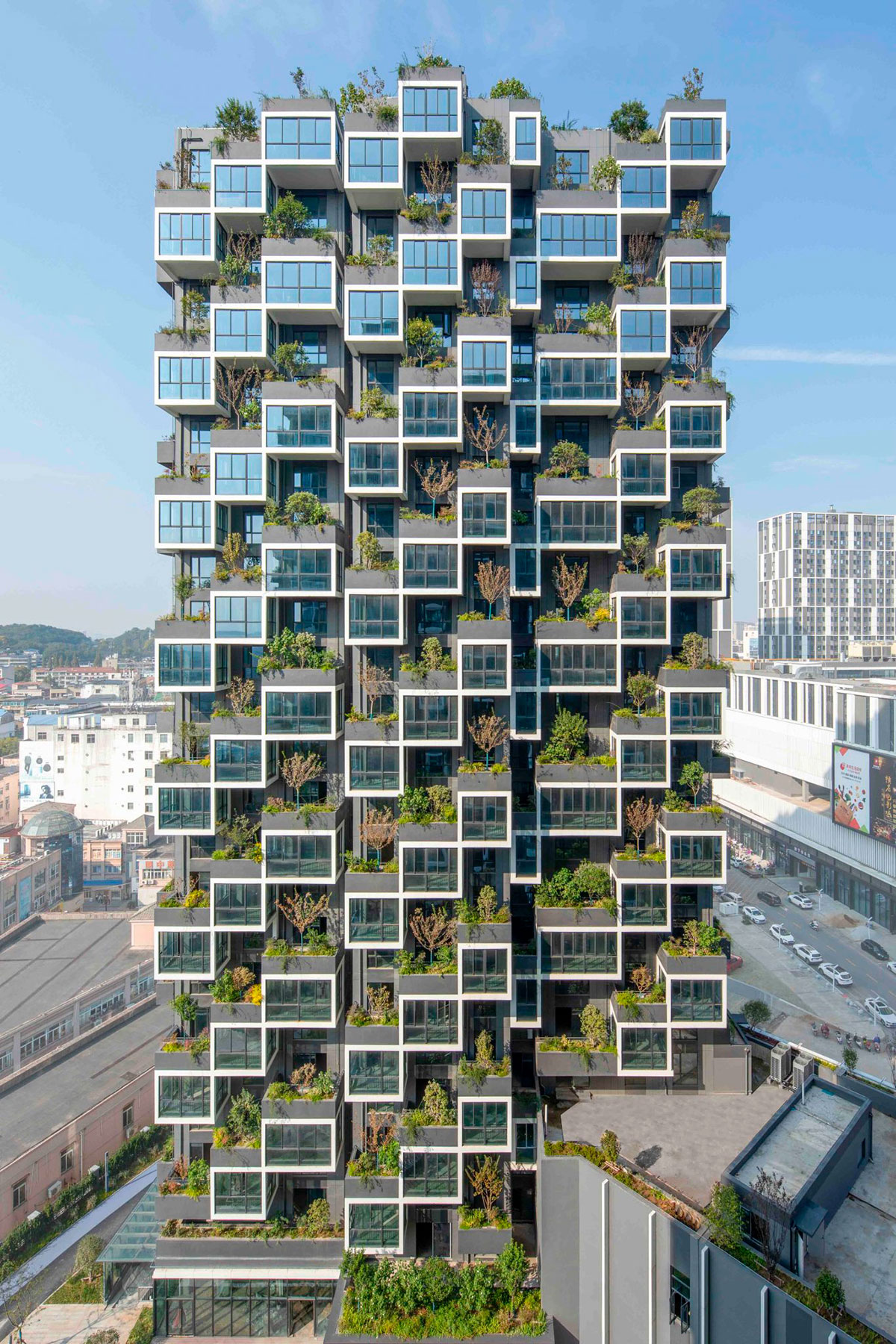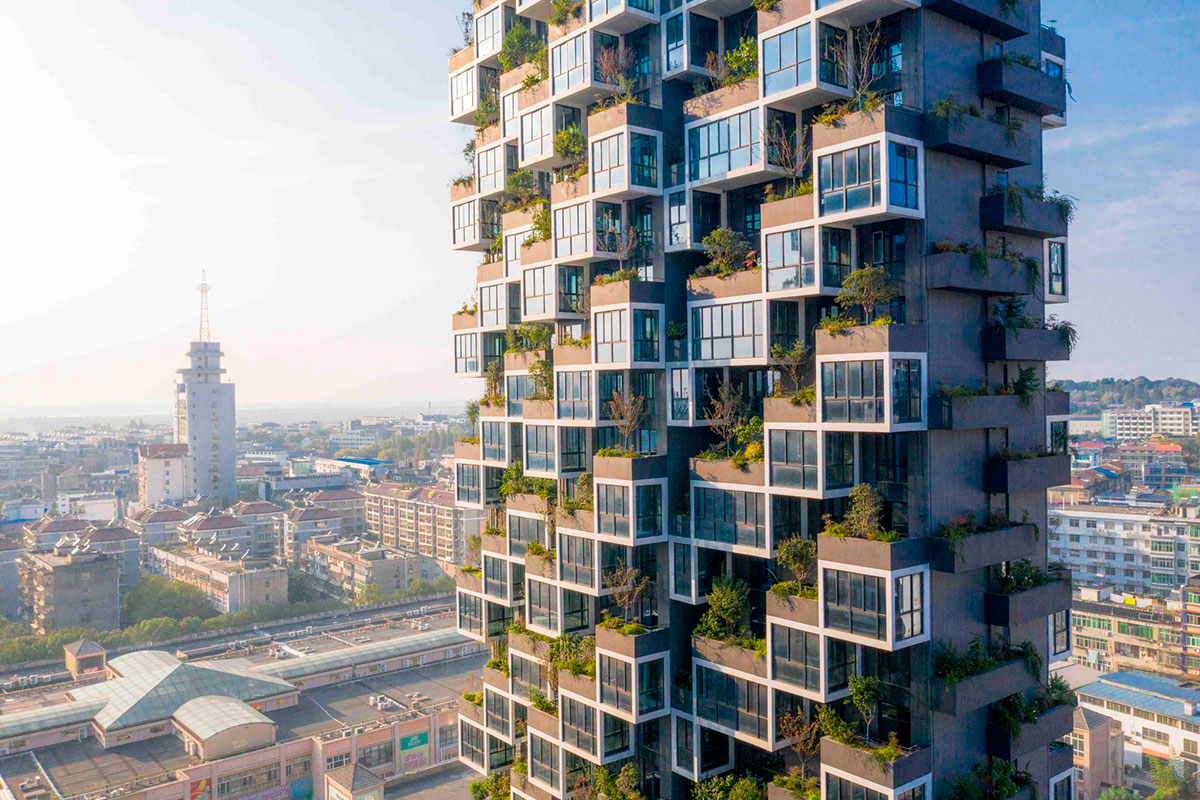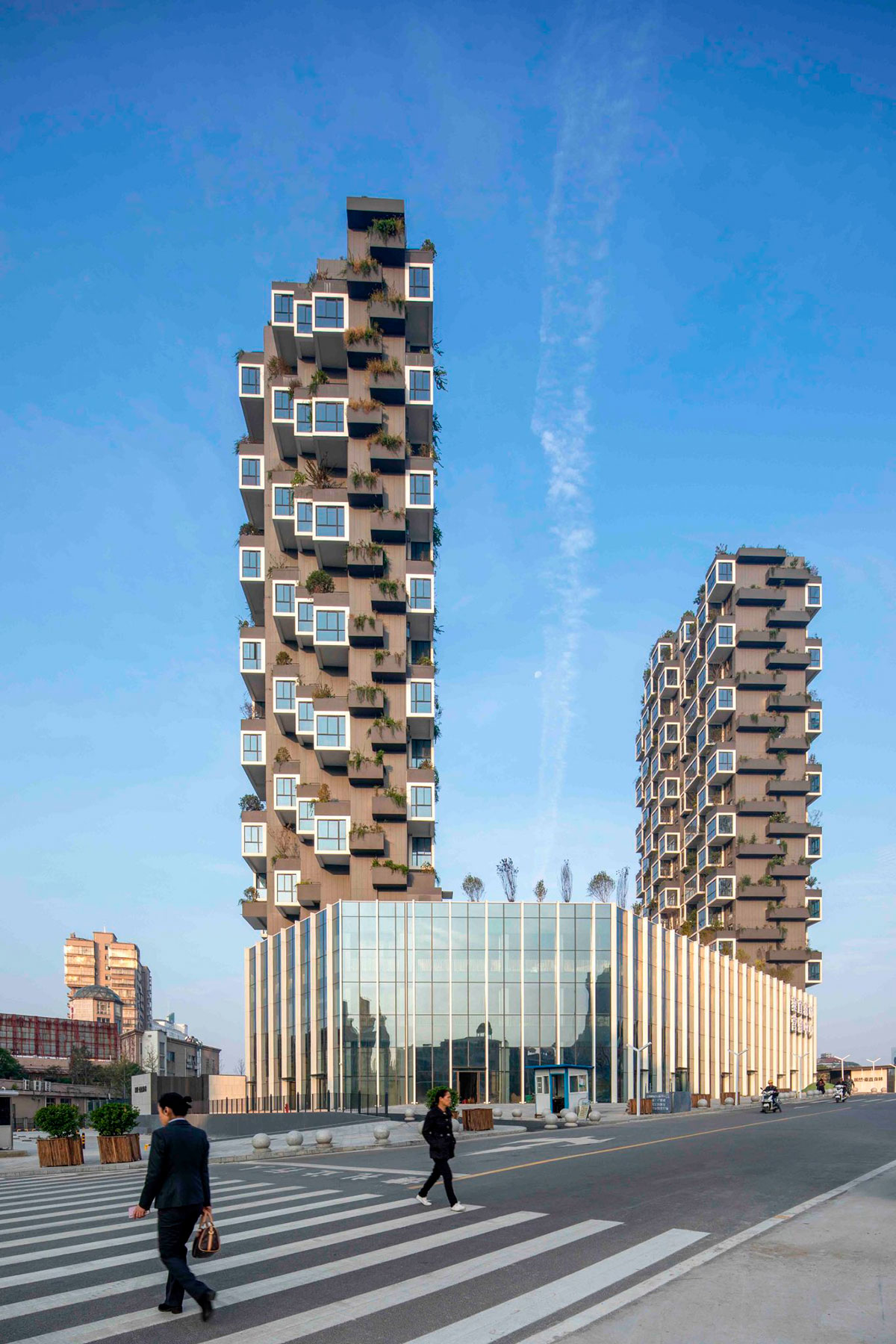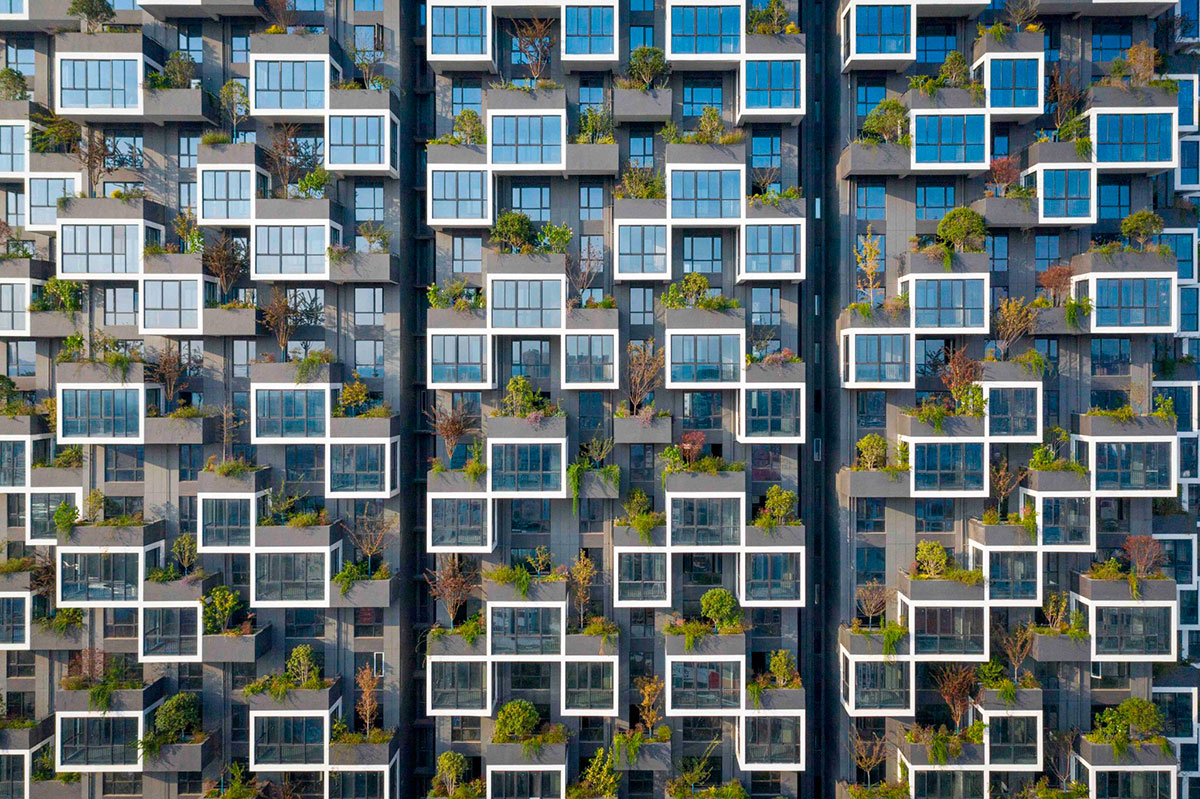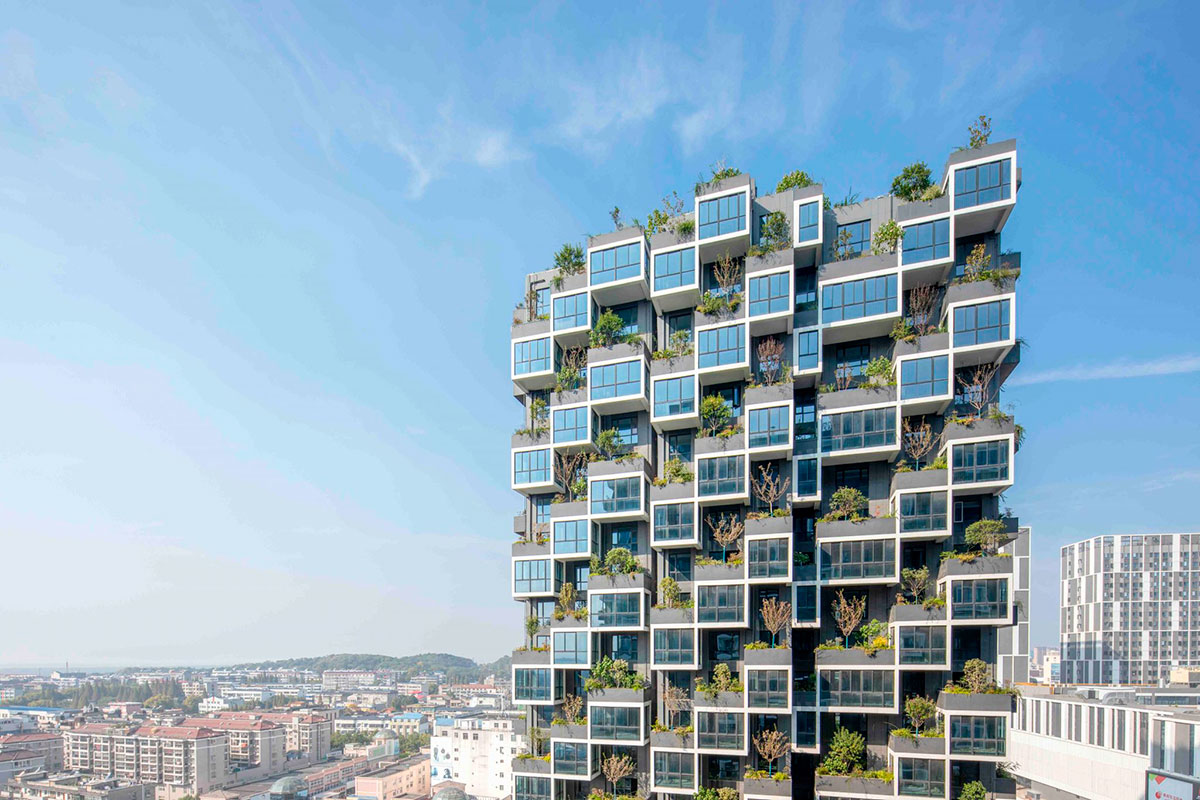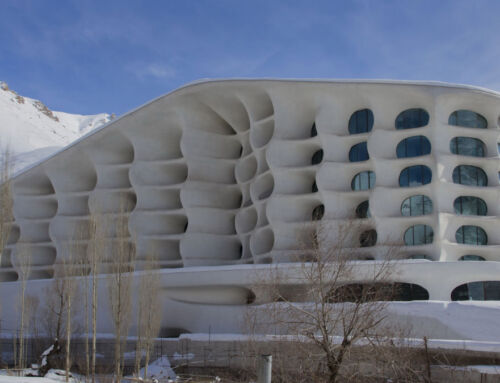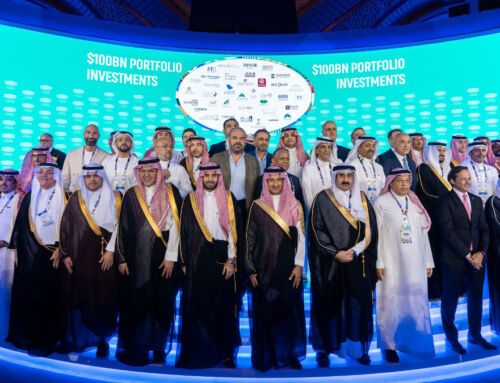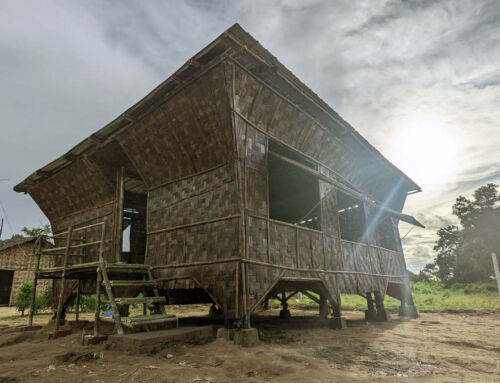The Easyhome Huanggang Vertical Forest City mixed-use urban development in Huanggang City, Hubei Province, China, “has been designed to create a new green complex capable of integrating residential buildings, hotels and large commercial spaces“. This is how the architects of the Italian firm that designed it, Stefano Boeri Architetti, summed it up. It is a development on an area of 4.54 hectares, with 5 towers, three of them for offices, hotels and commercial use, and the other two for residential use. The two residential towers, “designed as vertical forests capable of providing a new living experience“, are precisely the ones that have caught our attention from this entire project, which was completed just a few weeks ago.
Whilst the façades of the commercial towers are mostly clad with evenly distributed vertical and modular elements, the two residential towers have a series of stepped cantilevers that break up the lines and give rhythm to the façade. The alternation of open and closed balconies and the presence of trees and shrubs between them produce this effect, as well as providing a “transitional space between nature and the human living environment”. In fact, the irregular arrangement of the balconies frees the plants to grow unimpeded in height, so that the “foliage” is perfectly integrated into the façade design. In this way, the inhabitants of this “vertical forest” will experience the urban space while still fully enjoying the well-being of being surrounded by nature.
But in addition to providing well-being for the residents, this architectural project, the Easyhome Huanggang Vertical Forest City, is also environmentally beneficial. Indeed, the vegetation on the façade of the two towers, made up of selected local plant species, annually absorbs some 22 tonnes of CO2, while producing 11 tonnes of O2 over the same period. According to Dezeen, this vertical forest, the first residential building to be built in China with façades covered with trees and plants, is a type of building invented by architect Stefano Boeri.
Source: Stefano Boeri Architetti, ArchDaily, Dezeen.
Images: Stefano Boeri Architetti.


